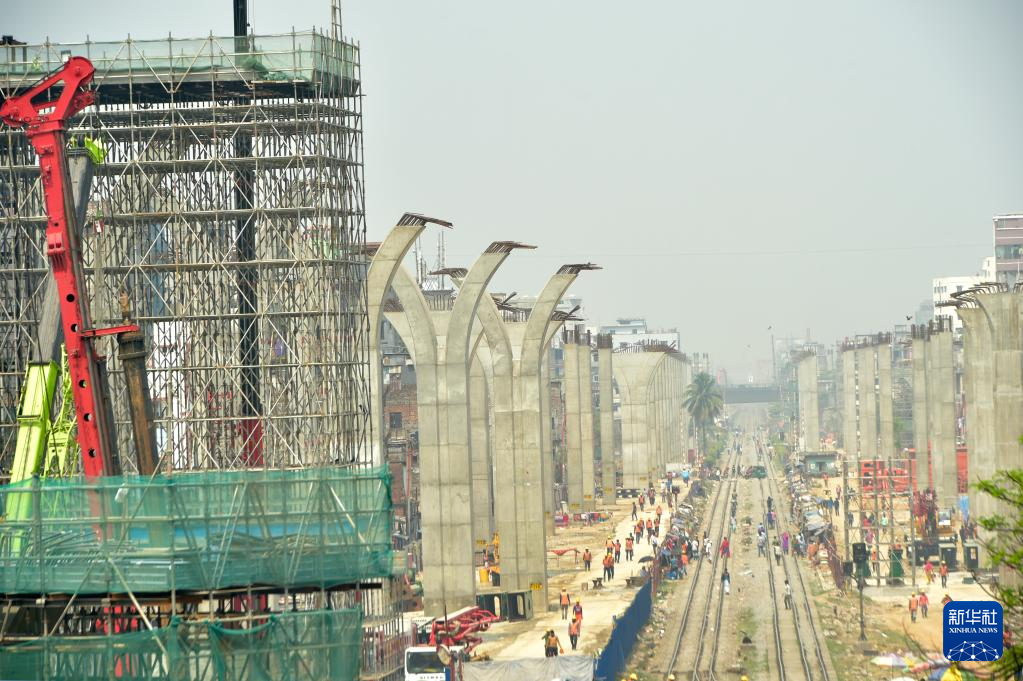
Photo taken on March 17, 2022 shows the construction site of the First Dhaka Elevated Expressway (FDEE) in Dhaka, Bangladesh. (Xinhua)
by Liu Chuntao, Naim-Ul-Karim
DHAKA, April 25 (Xinhua) -- At midday, when many seek respite from the scorching heat of summer, Fan Zhanyin is busy tying rebar cages for a new Dhaka expressway.
And the Chinese technician is not alone. The whole crew of Chinese and Bangladeshi workers are hard at it. "I'm very happy working with Bangladeshi people," Fan said, as he took a brief break at a First Dhaka Elevated Expressway (FDEE) construction site, one of the country's flagship infrastructure projects. "We have a great time working together."
Fan works for a Chinese-Bangladeshi joint venture In January 2011, when the Bangladesh Bridge Authority contracted an overseas construction company to build the expressway. Almost a decade later at the end of 2019, with no progress made, the deal was handed over to Chinese companies, Shandong Hi-Speed and SinoHydro in a public-private partnership with the bridge authority.
Dhaka is one of the world's most densely populated capitals with some of the worst traffic jams. The 20-km expressway runs from Hazrat Shahjalal International Airport to Dhaka's central Kamalapur railway station before connecting with the Dhaka-Chattogram Highway, the main transportation artery in Bangladesh.
Local technician Sajjadul Kabir is very happy to work with the project. "I'm very happy to be able to work in such a big project. I'm learning a lot of things from my Chinese colleagues," he said.
Md Belal Hossain is in charge of safety at the joint venture. "During the COVID-19 outbreak, when other projects and other industries were closed down, we continued to work," he said.
As the first elevated expressway in Dhaka, there are some unique challenges. "We will have to build a section over railway line. There are plenty of risks and challenges. One of our targets is zero accidents, and we are still on target to meet that goal."
Zou Bing is in charge of work on the Banani section under construction now. To meet the strict progress requirements, they bought almost 200 pieces of lager construction locally, and took on more than 2,500 workers. Those same workers have used excavators to renovate a school playground and dredge the sewer and flood drains of communities around the site.
"The project is now progressing rapidly, but work is not easy," he said. The expressway passes through the commercial and densely populated residential areas of Dhaka, crossing the railway many times.
Safety fences on both sides of the railway keep local residents clear of the site. "Almost seven km of the route rides over the existing railway line. Trains still run every 20 minutes," said Zou.
"When completed the expressway will shorten the travel time from three hours to 20 minutes and ease the traffic in Dhaka. Eventually, it will be of great significance to Dhaka's economy," he said. ■
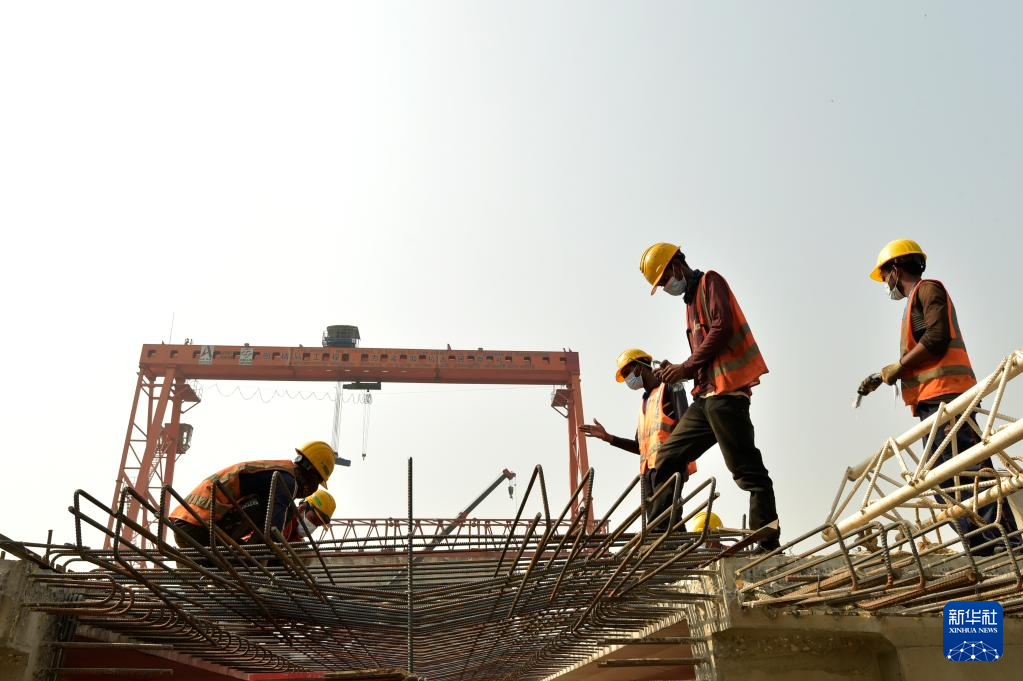
Workers tie rebar cages for the First Dhaka Elevated Expressway (FDEE) in Dhaka, Bangladesh, March 17, 2022. (Xinhua)
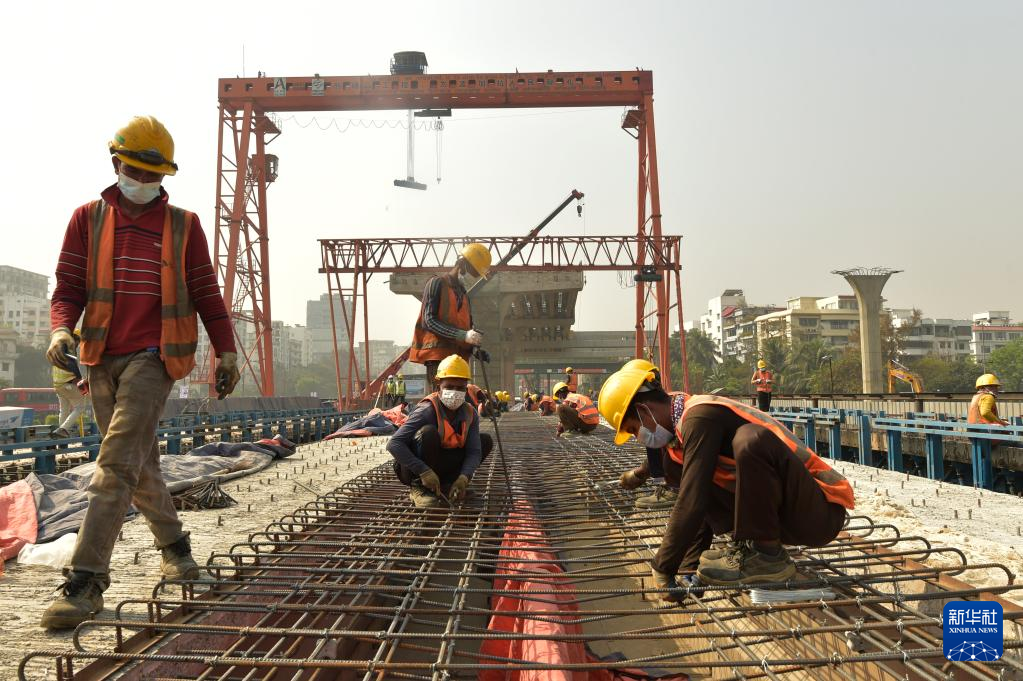
Workers tie rebar cages for the First Dhaka Elevated Expressway (FDEE) in Dhaka, Bangladesh, March 17, 2022. (Xinhua)
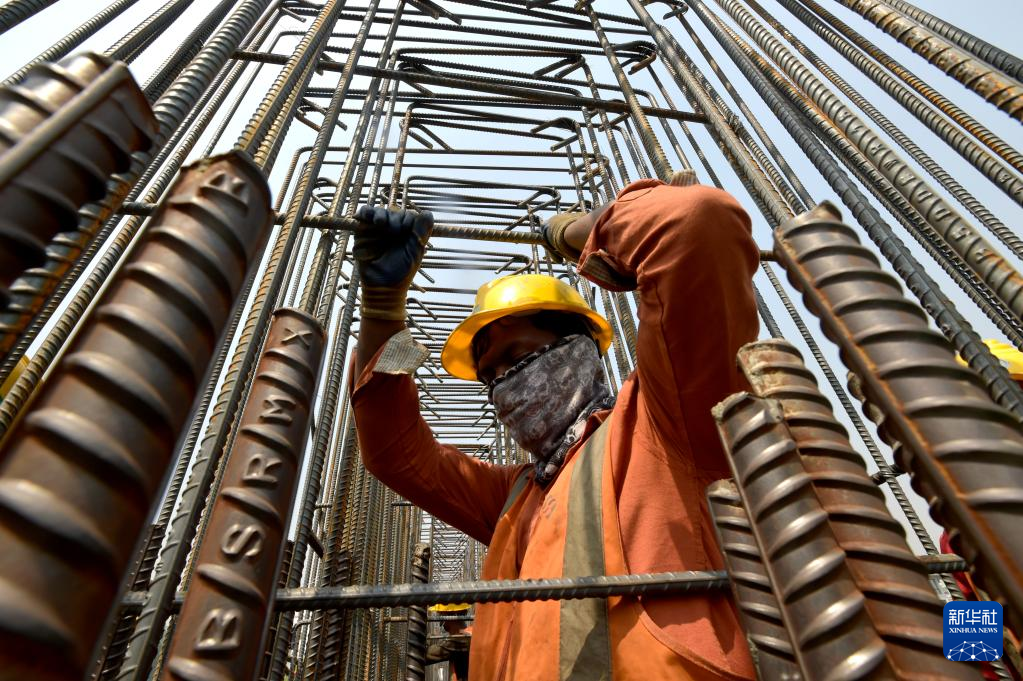
A builder works at the construction site of the First Dhaka Elevated Expressway (FDEE) in Dhaka, Bangladesh, March 17, 2022. (Xinhua)
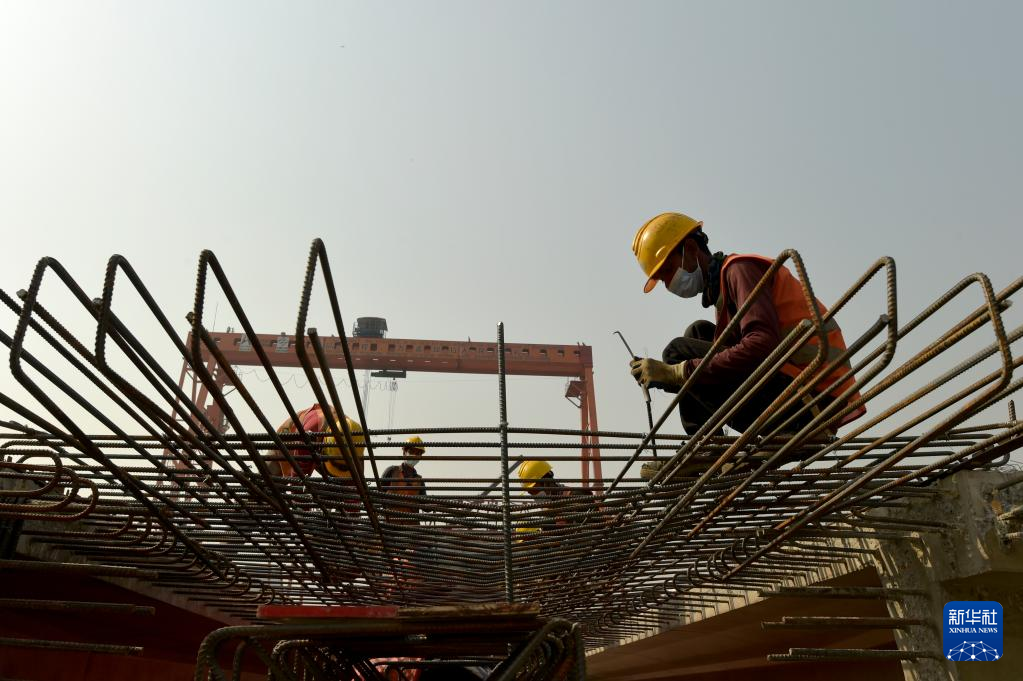
Workers tie rebar cages for the First Dhaka Elevated Expressway (FDEE) in Dhaka, Bangladesh, March 17, 2022. (Xinhua)



